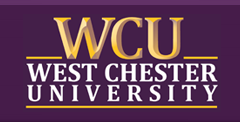Document Type
Article
Publication Date
3-2022
Abstract
Over the last twenty years, technological advances have created the opportunity to disseminate information to millions of end users within seconds. Empirical studies have indicated that this engagement with technology (particularly through social networking sites) has an influence on individual stress. Terms such as “technostress” and “social networking stress” have been invented to describe these conditions. Most studies, however, have not taken into consideration the occupation of the user. The current study investigates the influence of media, news media and social media, on first responders (firefighters, emergency medical personnel, police officers, dispatchers) and their self-reported stress levels. Findings from completed surveys (n = 635) revealed that first responders who engaged in social media reported higher stress levels than those who did not. Additionally, emergency medical personnel reported the highest level of perceived stress (PSS Scale) and SNS stress (Social Networking Site stress) when compared to the other three first responder occupational groups. Police officers were more exclusive with contacts on social networking sites and were more likely to report unfavorable treatment by news media when compared to their counterparts. Implications for managing first responder stress related to exposure to social media (in particular) are discussed.
Publication Title
Crisis, Stress, and Human Resilience: An International Journal
Publisher
International Critical Incident Stress Foundation, Inc.
Volume
3
Issue
4
First Page
106
Last Page
137
Recommended Citation
Tucker, J. M., Bratina, M. P., & Caprio, B. (2022). Understanding the Effect of News Media and Social Media on First Responders. Crisis, Stress, and Human Resilience: An International Journal, 3(4), 106-137. Retrieved from https://digitalcommons.wcupa.edu/crimjust_facpub/8
Included in
Emergency and Disaster Management Commons, Mass Communication Commons, Social Media Commons
